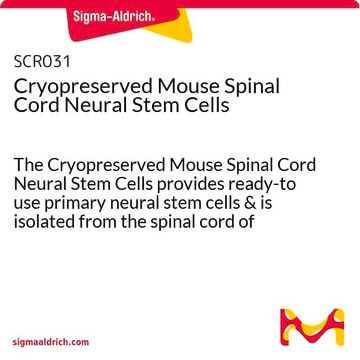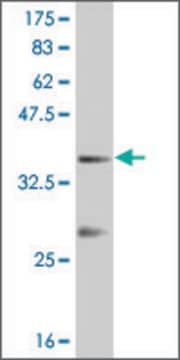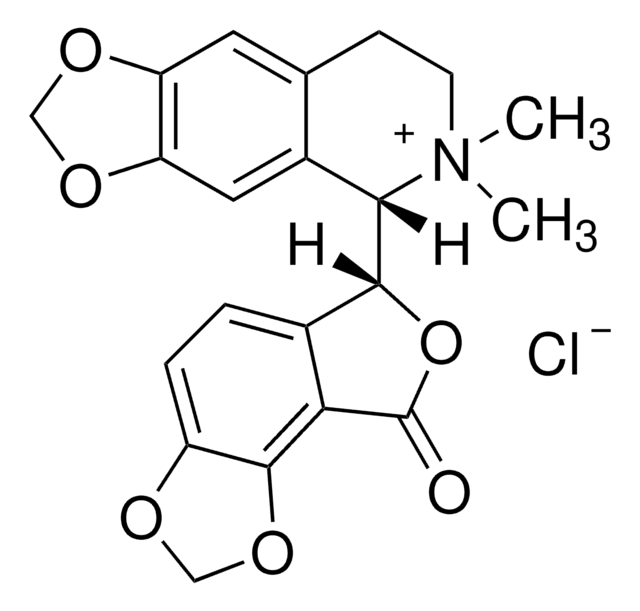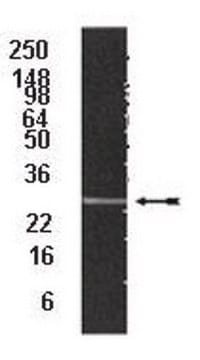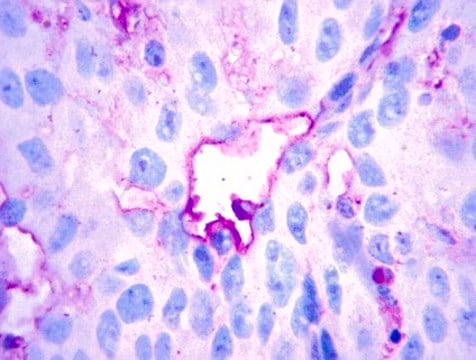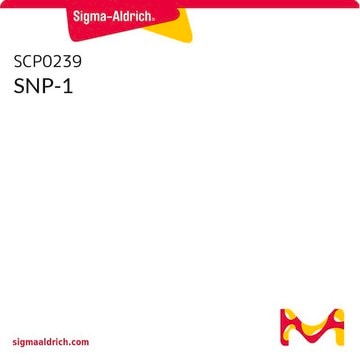MABE268
Anti-Musashi-1 Antibody, clone 7B11.1
clone 7B11.1, from mouse
Synonyme(s) :
RNA-binding protein Musashi homolog 1
About This Item
Produits recommandés
Source biologique
mouse
Niveau de qualité
Forme d'anticorps
purified immunoglobulin
Type de produit anticorps
primary antibodies
Clone
7B11.1, monoclonal
Espèces réactives
rat, mouse, human
Technique(s)
immunohistochemistry: suitable
western blot: suitable
Isotype
IgG2aκ
Numéro d'accès NCBI
Numéro d'accès UniProt
Conditions d'expédition
wet ice
Modification post-traductionnelle de la cible
unmodified
Informations sur le gène
human ... MSI1(4440)
Description générale
Immunogène
Application
Epigenetics & Nuclear Function
Neural Stem Cells
Immunohistochemistry Analysis: A 1:1,000 dilution of this antibody detected Musashi-1 in mouse cerebellum, normal mouse brain, and normal human pons tissue.
Qualité
Western Blot Analysis: 1 µg/mL of this antibody detected Musashi-1 in 10 µg of mouse E17 spinal cord tissue lysate.
Description de la cible
Liaison
Forme physique
Stockage et stabilité
Remarque sur l'analyse
Mouse E17 spinal cord tissue lysate.
Autres remarques
Clause de non-responsabilité
Vous ne trouvez pas le bon produit ?
Essayez notre Outil de sélection de produits.
Code de la classe de stockage
12 - Non Combustible Liquids
Classe de danger pour l'eau (WGK)
WGK 1
Point d'éclair (°F)
Not applicable
Point d'éclair (°C)
Not applicable
Certificats d'analyse (COA)
Recherchez un Certificats d'analyse (COA) en saisissant le numéro de lot du produit. Les numéros de lot figurent sur l'étiquette du produit après les mots "Lot" ou "Batch".
Déjà en possession de ce produit ?
Retrouvez la documentation relative aux produits que vous avez récemment achetés dans la Bibliothèque de documents.
Notre équipe de scientifiques dispose d'une expérience dans tous les secteurs de la recherche, notamment en sciences de la vie, science des matériaux, synthèse chimique, chromatographie, analyse et dans de nombreux autres domaines..
Contacter notre Service technique

